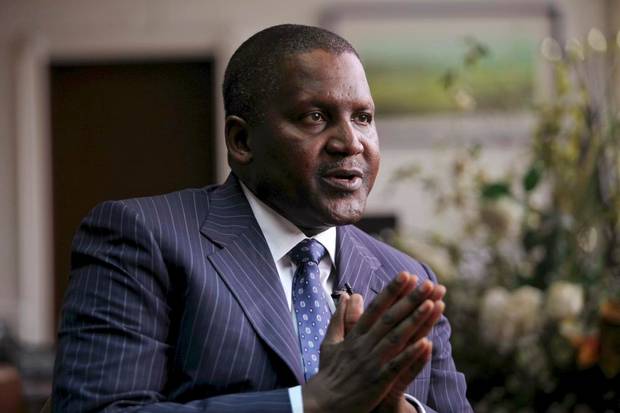A look into one of the wealthiest men on the planet, and what we can learn from his story.
1. Invest in what you know
Dangote learned from one of the oldest investing lessons in the book. Born in 1957, he was exposed to the entrepreneurial spirit at a young age. He was raised in Kano State, Nigeria, by his grandfather, who himself became one of the wealthiest men in the area selling commodities.
After graduating from Egypt’s Al-Azhar University, the 21-year-old took a $3,000 loan from his uncle and set out on his own, but he didn’t stray far from the family business. Dangote used the loan to import rice, sugar, and cement from overseas at wholesale prices and then sell locally at significant markups. This was a business Dangote understood thanks to his grandfather, and he was able to make the venture an immediate success. According to Warren Cassel at Investopedia, Dangote Group “had grown into one of the largest trading conglomerates operating in the country” by 1990.
2. Find companies that create value
Dangote’s business flourished for 20 years, but he saw the opportunity to shift directions, fulfill a dire need. and grow even more. Nigeria was at the end of a 15-year stretch of military rule, and the new president, Olusegun Obasanjo, had promised to protect local industry, which set the stage for Dangote to make his move. “In a country where imports constitute the vast majority of consumed goods,” the Dangote Group website states, “a clear gap existed for a manufacturing operation that could meet the ‘basic needs’ of a vast and fast growing population.”
Having begun as an importer and trader of commodities, Dangote already had a strong distribution network, so he had a distinct competitive advantage as his company transitioned into manufacturing flour, pasta, and sugar.
3. Harness the power of brands
The distribution network was an important piece of the puzzle, but as Dangote has said, “[T]o succeed in business you need to build a brand and never destroy it.” Whether it was a Donald Trump-like flair or a desire to capitalize on name recognition built from his years as a commodities trader, Dangote branded the products with his name.

SOURCE: DANGOTE GROUP WEBSITE.
The brand would be built on high-quality products at affordable prices — which is something that works as well in Africa as it does everywhere else in the world — and is now one of the most recognizable brands on the continent.
4. Focus on strong capital allocation
Building and maintaining a brand requires substantial investment. And if there’s one thing that stands out about Dangote, it’s his ability to successfully plow money back into his businesses. He has created the economies of scale that allow his company to sell products at cheaper prices than his competitors do. That’s something many CEOs attempt to do but only a handful do well. Warren Buffett and Jeff Bezos are two names that come to mind.
In 2000, the Dangote Group acquired a cement company from the Nigerian government, and by 2003, Dangote was ready to expand the business by combining a $479 million loan with $319 million of his own money to commission the largest cement plant in sub-Saharan Africa. Today, Dangote Cement Plc is valued at roughly $14 billion, which makes it the largest company on the Nigerian Stock Exchange and accounts for 25% of the exchange by market cap.
The successful reinvestment into Dangote companies is a consistent theme. It’s also happened by way of multiple expansions at Dangote Sugar, which has grown to become the second largest sugar refinery in the world. The company’s distribution network has grown from 600 trucks to over 1,500 since the late 1990s.
5. Embrace optionality
However, along with reinvesting into current business, what makes companies such as the Dangote Group special is their ability to move in multiple directions. The Dangote Group has ventured beyond its initial focus of cement, sugar, and flour and into real estate, telecom, steel, and oil and gas.
There are probably sectors Dangote won’t move into, but it seems as if nothing is off limits. That approach is what has allowed Dangote’s business — and his net worth — to grow so incredibly. Today, Dangote Group is a massive conglomerate generating $3 billion in revenue annually.
In Africa, Dangote Group is viewed as part folk hero — for reinvesting in and creating jobs on the continent — and part villain — as Dangote himself came from wealth and has potentially leveraged government relationships to establish unfair advantages. Dangote is a polarizing figure, but his story provides plenty of interesting business insights and investment advice. And since he’s just 58 years old, we can expect to hear plenty more from Africa’s richest man.
This article was first published in The Motley Fool














